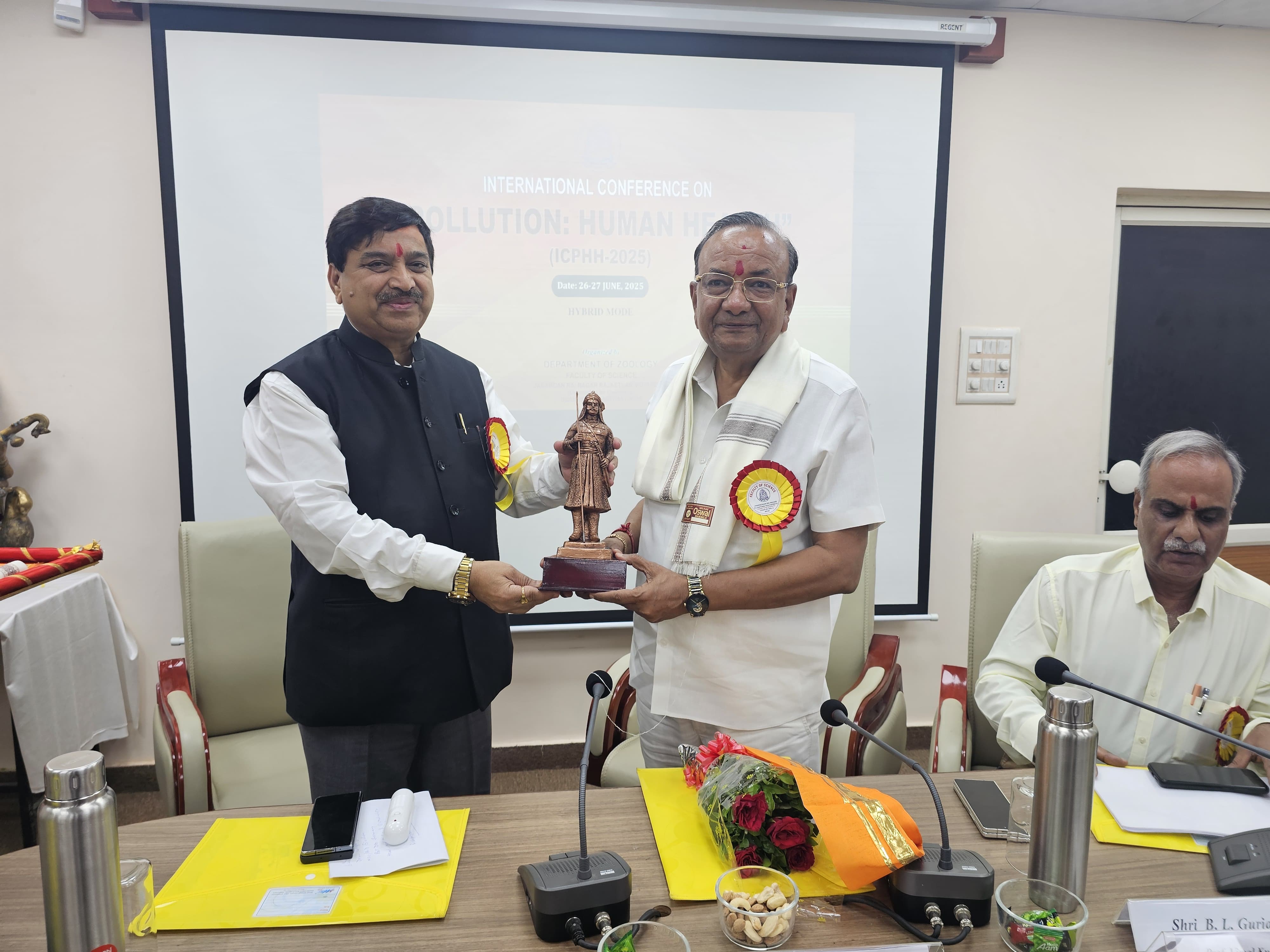##### Clean India is the First Step to a Developed India – K.K. Gupta
Two-Day International Seminar on Pollution's Impact on Human Life Begins

Udaipur, A two-day international seminar on “The Impact of Pollution on Human Life” began on Thursday at the IT Auditorium, Pratapnagar. Organized by the Faculty of Science, Geology Department of Janardan Rai Nagar Rajasthan Vidyapeeth, the seminar focused on the grave concern of pollution and its direct impact on human survival and well-being.
K.K. Gupta, Member of Swachh Bharat Mission and former Chairman of Dungarpur Municipality, inaugurated the seminar as Chief Guest. He emphasized that in today’s era, clean air, water, and environment are just as crucial as food, clothing, and shelter.
“No matter how much we progress, until we eliminate air, water, and soil pollution, we cannot be counted among developed nations,” said Gupta.
He pointed out that while developed nations have an average lifespan of 82 years, in India, it is only 62, largely due to environmental degradation.
Gupta highlighted that ₹30,000 crores are being invested through Rising Rajasthan, setting the state firmly on the path to development. However, he stressed that cleanliness must precede progress, reminding the audience of the lessons from the COVID era and urging renewed commitment to cleanliness. He also recalled Prime Minister Narendra Modi’s call to plant a tree in one’s mother’s name, extending it further to include one’s father and self.
Gupta warned about the dangers of plastic pollution, which he stated has contributed to over 50% increase in cancer cases. He called for mental and behavioral change in households, especially in segregating wet and dry waste, and underlined the importance of water conservation.
Prof. S.S. Sarangdevot, Vice-Chancellor of Rajasthan Vidyapeeth, presided over the event.
He stated,
“To transform India into a developed nation by 2047, we must strengthen our environmental, industrial, educational, and healthcare frameworks.”
Prof. Sarangdevot underlined the need to cleanse the five elements – land, sky, air, water, and fire – and called upon the youth to lead the movement for a pollution-free India. He warned that plastic, which takes 450 to 1,000 years to degrade, has devastated the ecosystem, with only 9% of global plastic waste recycled.
Keynote speaker Prof. Vimal Sharma shed light on how climate change, biodiversity loss, and global warming have adversely affected human health.
He shared that a 1°C rise in temperature increases the risk of premature death by 3% and noted the formation of Urban Heat Islands due to concrete structures, which elevate city temperatures by 5–7°C.
He emphasized the potential of biotechnology tools like gene editing, biosensors, and bioremediation in combating health risks like cancer.
Dr. Pooja Joshi, organizing secretary, welcomed guests and shared that over 250 participants have joined the seminar in hybrid mode.
Dr. Sangeeta Rathore and Dr. Vinita Rathore also addressed the technical sessions.
The event was coordinated by Dr. Jay Singh Jodha, Dr. Bhavesh Joshi, Siddhima Sharma, Lalima Sharma, and Rupesh, and witnessed the presence of Deans, Directors, students, and scholars of the university.
Siddhika Sharma anchored the event, and Dr. Jay Singh Jodha extended the vote of thanks.
साभार :
© CopyRight Pressnote.in | A Avid Web Solutions Venture.






